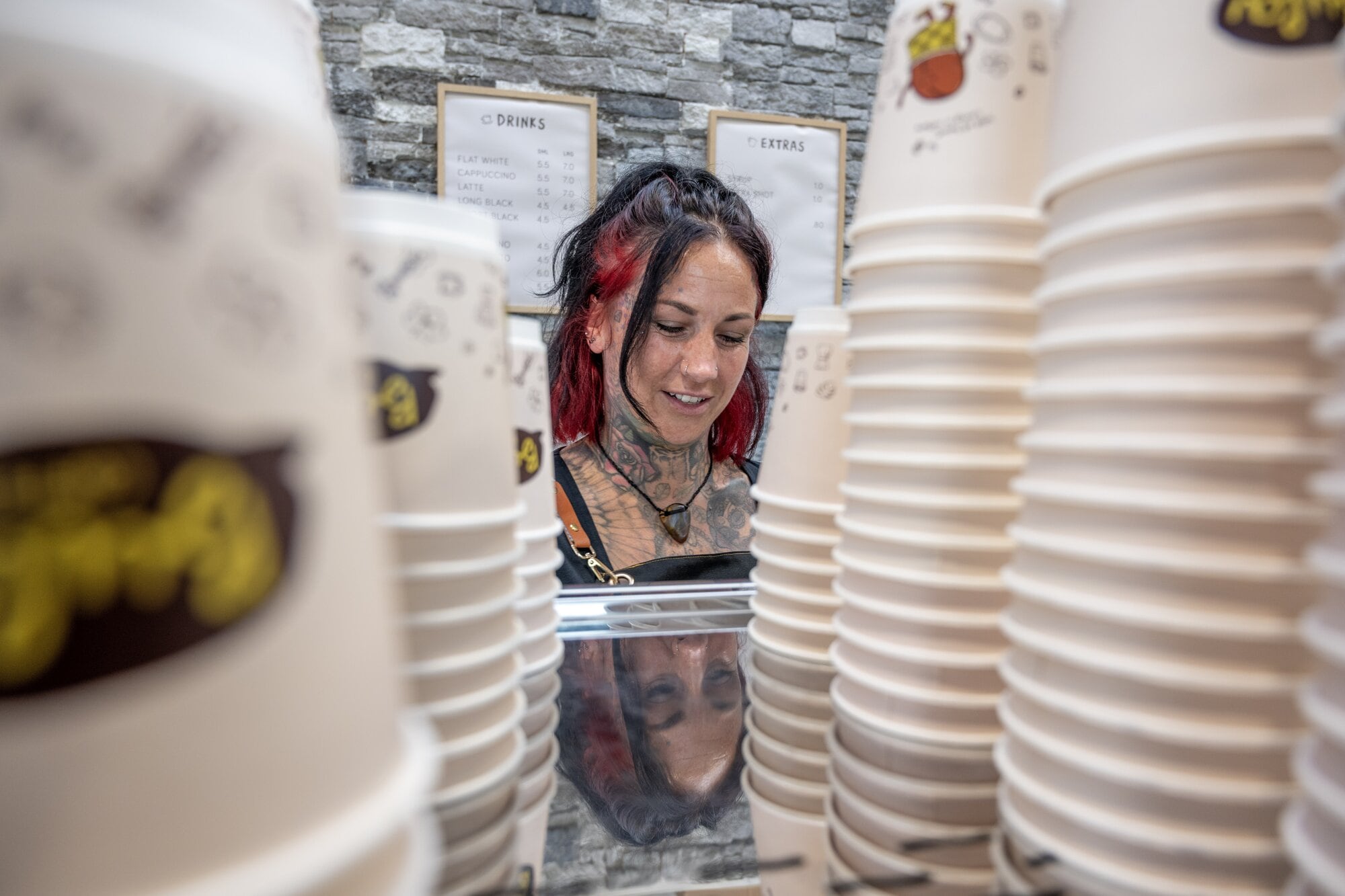A coffee roastery in Tauriko is helping brew a better future for Fijian villages, one bean at a time, thanks to the passion of a Tauranga family.
What began as a chance discovery of wild coffee plants growing in the Fijian highlands has transformed into a thriving social enterprise that’s reshaping lives and livelihoods across Fiji’s most remote communities.
Bula Coffee, founded in 2011 by New Zealander Luke Fryett, is now a beacon of sustainable development – one cup of coffee at a time.
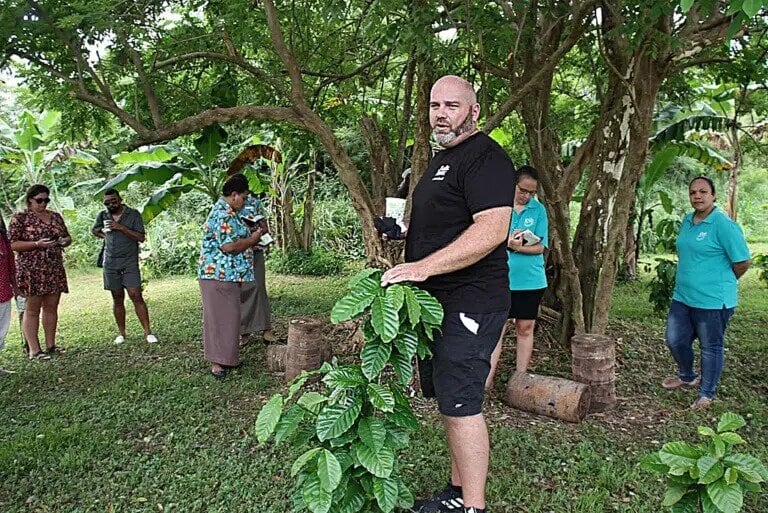
Luke Fryett during a Crop to Cup Coffee Tour, walking the visitors through the harvesting and production of coffee beans. Photo / Supplied.
From humble beginnings, harvesting just 20kg in their first season, Bula Coffee now sources beans from 38 remote Fijian villages, supporting 1500 coffee pickers. The company is the first and only coffee producer in the country to proudly display both ‘Fijian Grown’ and ‘Fijian Made’ emblems on its products.
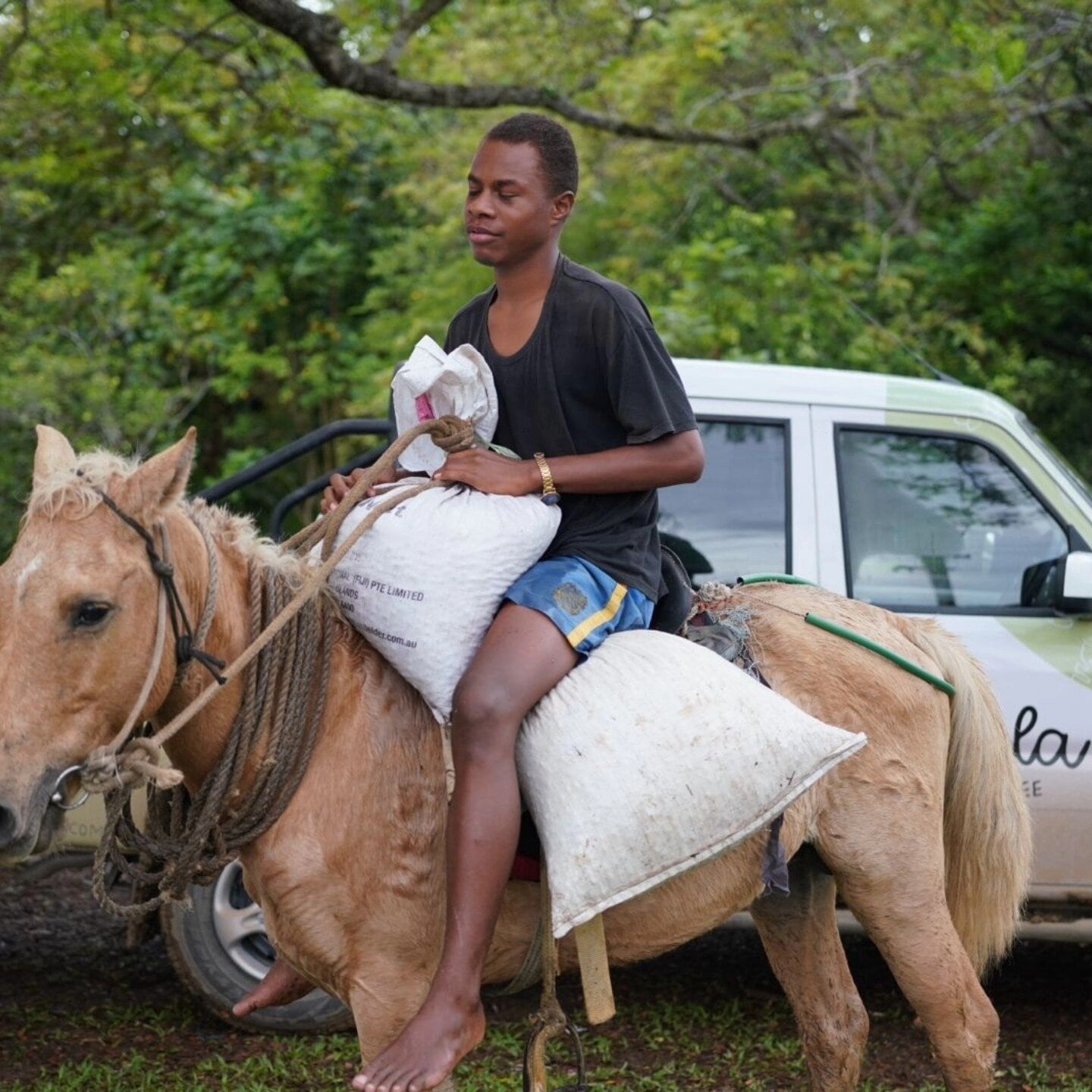
A Fijian villager bringing coffee beans by horseback to the Bula Coffee processing centre in Sigatoka. Photo / Supplied.
The story began in a village tucked deep in Fiji’s interior, where Fryett noticed coffee growing wild and largely unused.
“It was just falling off the bush and rotting on the ground,” said his mother, Colleen Fryett. “Luke saw the potential and promised to build a way for the villagers to earn from it.”
With no prior knowledge of the coffee industry and operating on a shoestring budget, Colleen said they began roasting coffee on the floor of a village house using a microwave-sized roaster.
Today, Bula Coffee operates a full processing plant on Fiji’s Coral Coast and offers Crop to Cup guided tours from its Sigatoka headquarters. These immersive experiences walk visitors through the coffee journey while telling the powerful story behind each bean.
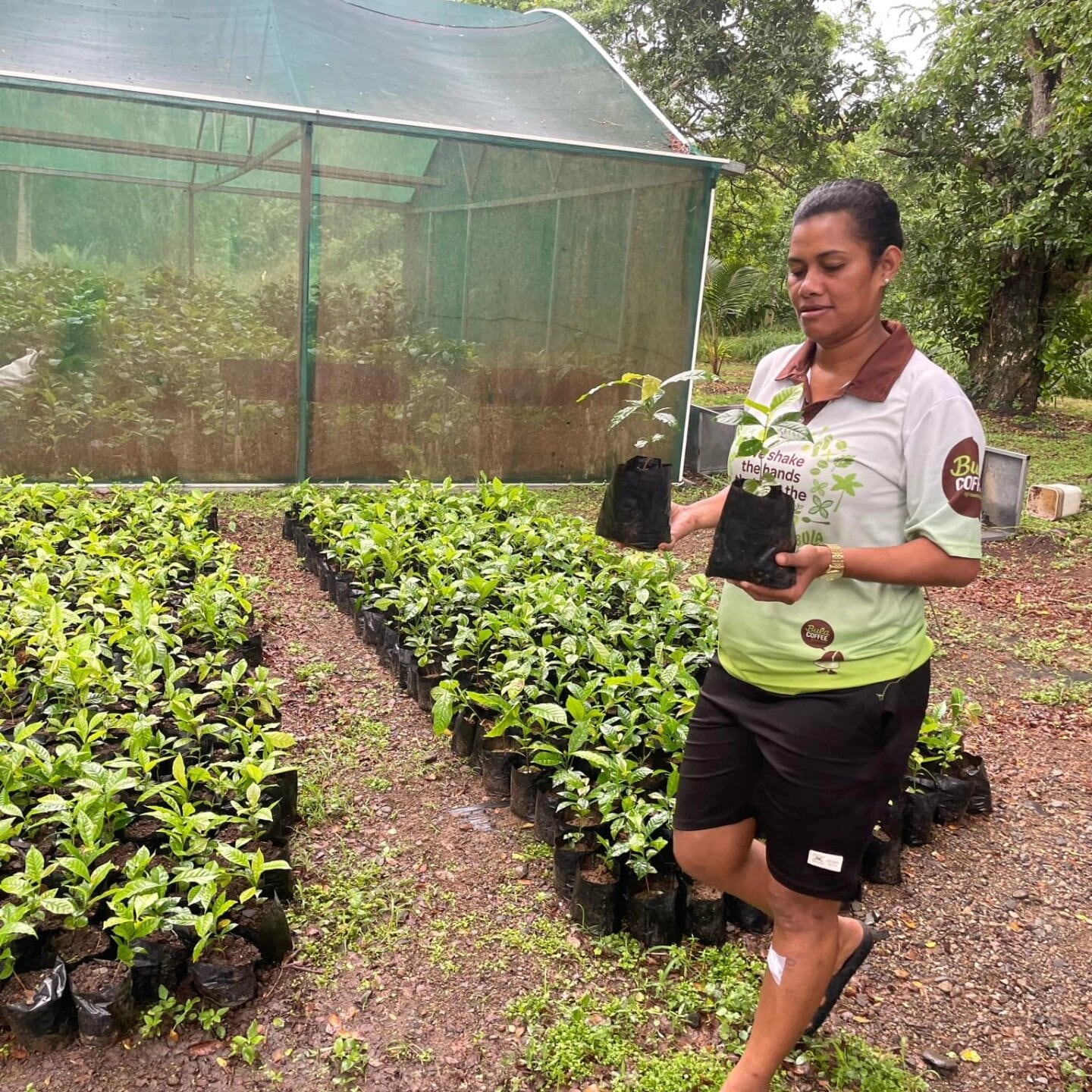
Bula Coffee is now helping villages move from wild harvesting to establishing managed plantations using locally grown seedlings. Photo / Supplied.
At the heart of Bula Coffee’s mission is a deep commitment to social impact and sustainability. The enterprise operates on a direct-trade model, purchasing beans straight from the villagers who pick them – many of whom are women.
“We pay the women directly,” Colleen said. “That way, the income goes to those doing the work, rather than being filtered through traditional village structures where women may miss out. Luke’s even helped many open their first bank accounts.”
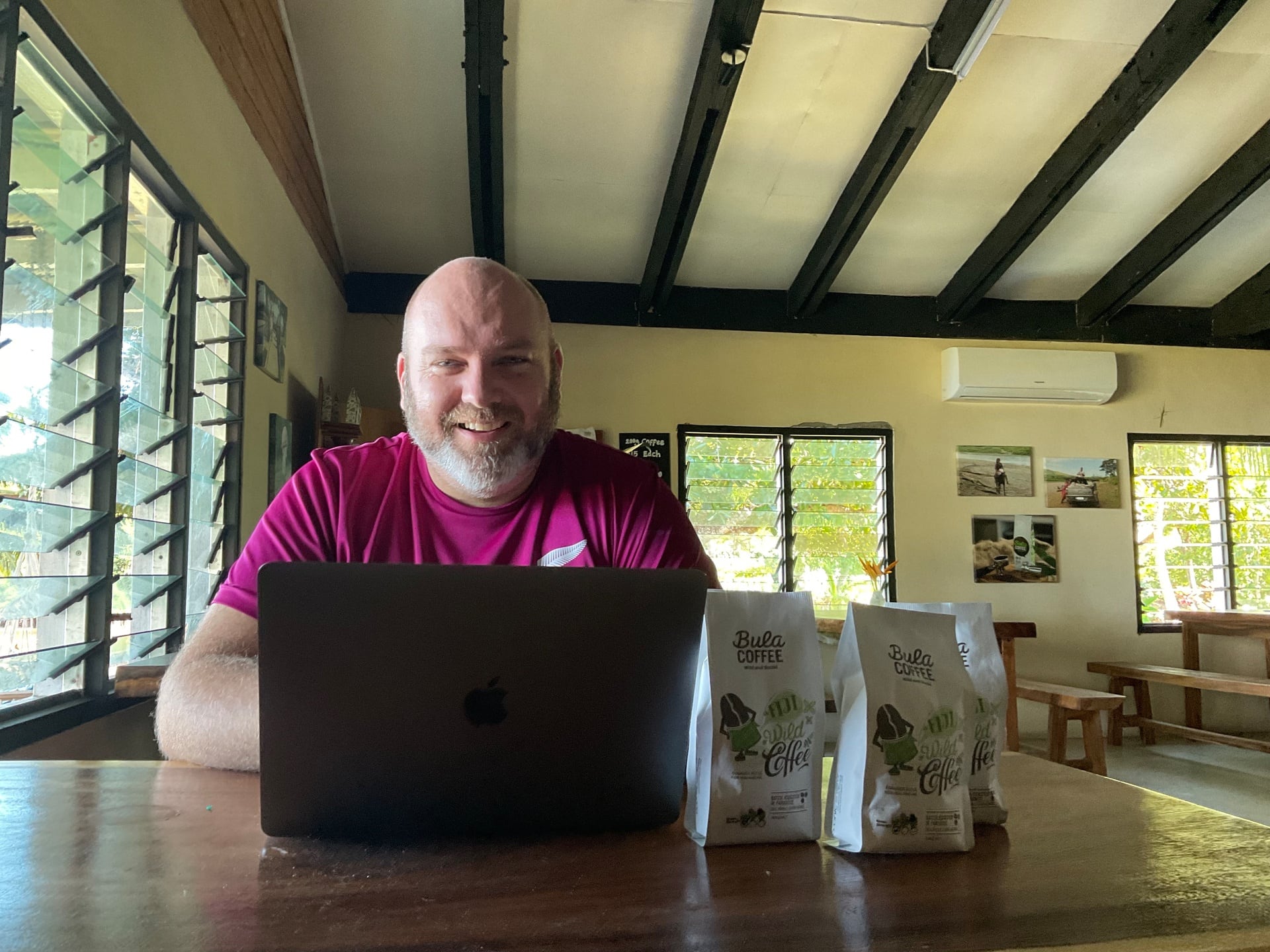
Bula Coffee owner Luke Fryett says helping local communities is just as important as crafting a good brew. Photo / Aaliyah-Rose Fryett
Before the pandemic, more than 5000 women were involved in picking coffee. Although numbers dipped during Covid-19 due to the collapse of the tourism industry, the enterprise is rebounding – boosted by local and international interest.
In some villages, Bula Coffee has become a lifeline. After a cyclone devastated crops and wiped out incomes, the village received $32,000 in payments from Bula Coffee for their harvest – income that would have otherwise never materialised.
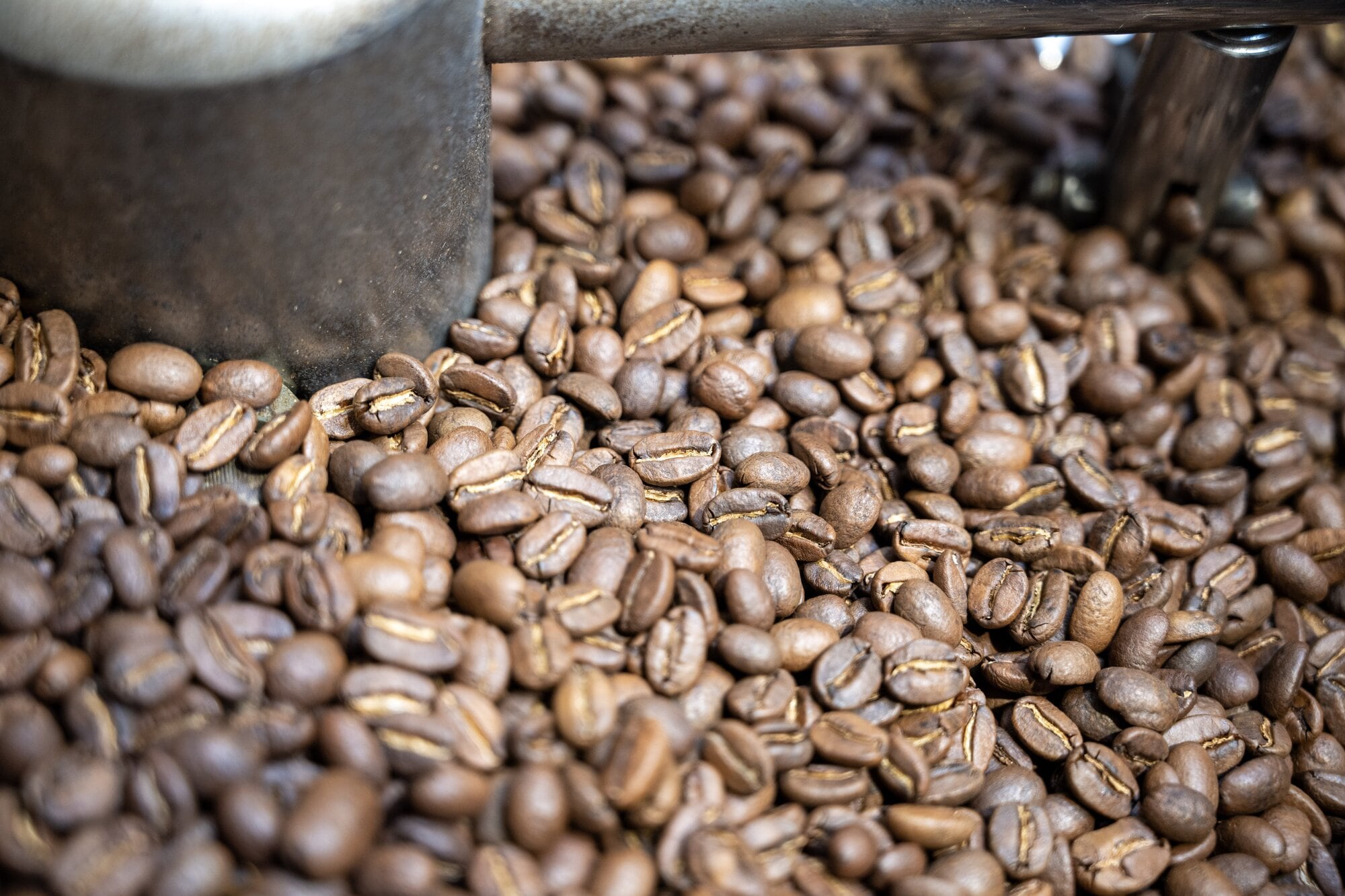
Coffee beans at Bula Café in Tauriko. Photo / David Hall
The work is often rugged and raw. Beans are hand-picked in the highlands, sun-dried, and carried down to villages by foot or horseback. From there, they’re processed locally and roasted in Fiji and now, also at the company’s new roasting facility in Tauriko.
The Tauriko roastery and Bula Café serve as a springboard for expanding the brand’s footprint in New Zealand and Australia. While the café offers food and coffee, the primary focus is scaling roasting operations and supporting sales that flow directly back to Fiji.
“The café helps us drive awareness and online sales,” said Colleen. “Every extra kilo we sell here increases the amount of coffee we can buy from the villages – and that income means women don’t have to leave their children behind to work in the tourism sector for months at a time.”
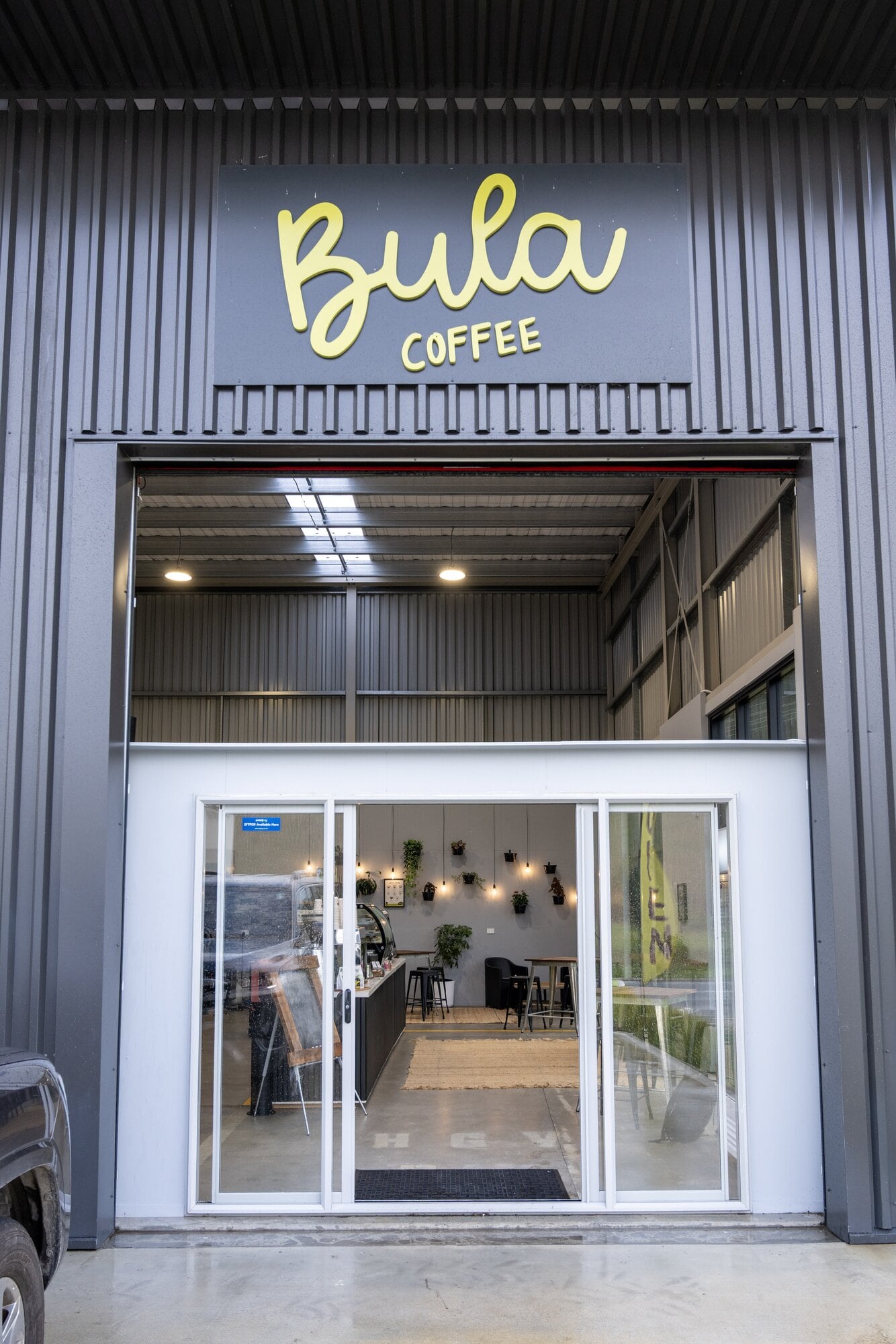
Bula Coffee has opened a café and roastery in Tauriko. Photo / David Hall
The Fryett family’s vision is holistic – combining environmental preservation, women’s empowerment, and economic development.
With support of grants, Bula Coffee is now helping villages move from wild harvesting to establishing managed plantations using locally grown seedlings. Luke, now a Fijian citizen, splits his time between fieldwork and international trade, including showcasing Bula Coffee at global expos.
Though still small-scale by global standards, Bula Coffee’s impact is outsized, said Colleen, with their model creating a premium product that proves an ethical, locally-rooted business can uplift communities without sacrificing quality or growth.

